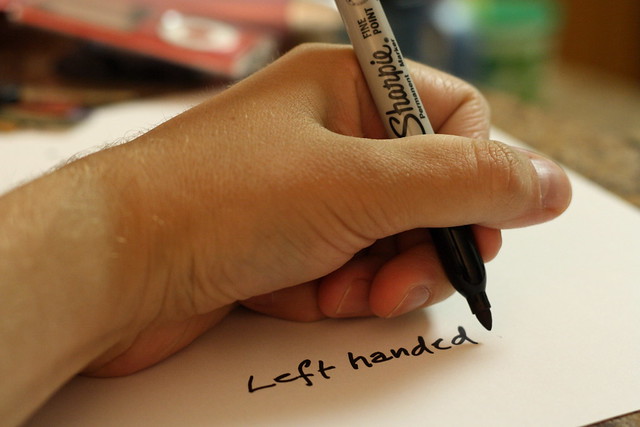sclerotic /SKLəR-aw-tik/. adjective. Of or related to the sclera (tough white outer layer) of the eye. Characterized by hardening and/or thickening of the cell walls. Figuratively: hard, unmoving, unchanging. From Greek sklēros (hard).
[Read more…]
steganography
/steg-ə-NAW-grə-fee/. noun. Secret writing. Concealing a secret message within another visible (or otherwise perceivable) message. From the Greek steganos (covered) + the Latin suffix -graphy (written)
satisfice
satisfice. verb. A blend of satisfy and suffice, coined by Nobel Prize winning economist Herbert A. Simon in his 1956 article ‘Rational Choice and the Structure of the Environment’ to describe the behavior of pursuing the minimum satisfactory outcome. Satisficing is the opposite of maximizing or optimizing. Also, a Northern English/Scottish synonym for satisfy.
[Read more…]
sabot
sabot /SA-boh/. noun. A wooden shoe or clog. A sleeve that holds and guides a projectile through a rifle tube. In baccarat, the box or shoe for dealing cards. In Australia, a small, snub-nosed dinghy. From Old French çabot, a blend of çavate (old shoe) and bote (boot).
[Read more…]
sinistral
sinistral /SIN-i-strəl/ adjective. Left-handed. Related to, or located, on the left side of the body. When describing some molluscs, is used to describe a shell that coils clockwise from its apex. In obsolete, but occasionally invoked usage, something unlucky, darkly suspicious or deeply unfavorable. See also: chirality(handedness), of which sinistral is one and dextral the other. From Latin sinistr-, sinister (left).
[Read more…]
sarcastic interrogative
sarcastic interrogative. noun. Defined by folklorist Charles Clay Doyle as “stock questions with glaringly obvious yes or no answers. The function of each such question is to respond derisively to a prior query, itself calling for a yes or no answer so as to suggest that the answer to the original query is too obvious to be worth proffering seriously.” Perhaps the most famous example: “Is the Pope Catholic?” And perhaps the most canonical: “Can a duck swim?”
[Read more…]
sprachgefühl
sprachgefühl /SHPRAW-khgə-fyuul/. noun. A feeling for language, particularly an intuitive understanding of when language usage is appropriate, effective and “right.” A sense and feel for language. From German sprache (language) + gefühl (feeling).
[Read more…]








